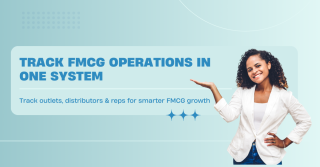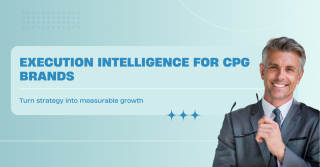Is Sales Enablement Vital for Sales Success?

In the fast-paced sales world, staying ahead of the competition is paramount. That's where sales enablement comes into play, but is it as vital as some claim for achieving success in sales? Let's dive into sales enablement encompasses and its influence on the modern sales process.
What Is Sales Enablement?
At its core, sales enablement is the strategic process of providing the sales organization with the tools, content, and information needed to sell more effectively. The goal is to empower salespeople to engage with the right prospects at the right time and with the right message to accelerate the sales cycle and generate revenue.
Importance of Sales Enablement
In today's competitive business environment, the importance of sales enablement cannot be overstated. It serves as a strategic imperative for the following reasons:
-
Improved Sales Performance: Sales enablement ensures sales teams can quickly access the needed resources, ultimately improving their performance. From product sheets to case studies, sales reps can leverage this collateral to make their pitch more compelling.
-
Enhanced Customer Experience: Equipped with detailed insights and targeted content, sales teams can provide a customized experience that resonates with each customer. This level of personalization is often what sets successful sales apart.
-
Alignment of Sales and Marketing: One benefit that cannot be overstated is how sales enablement bridges the often siloed sales and marketing departments. A cohesive strategy ensures marketing produces helpful content for sales, resulting in a more united front toward achieving common business goals.
-
Scalability and Efficiency: As a company grows, sales enablement tools and strategies scale to meet increased demand. This means that new sales hires can be onboarded more efficiently, ensuring they contribute to the bottom line faster.
-
Driving Revenue Growth: At its core, sales enablement is about driving revenue growth. Empowered and efficient sales teams are better positioned to capitalize on opportunities, close deals, and contribute to the overall financial success of the business.
Components of Sales Enablement
In modern sales strategies, the components of sales enablement have emerged as pivotal elements reshaping how businesses approach selling. Let’s see some of these critical components:
-
Sales Training and Coaching: Continuous learning is a cornerstone of sales enablement. Through regular training and coaching, sales representatives keep their skills sharp and strategies current.
- Content and Collateral Development: Adequate sales collateral is critical for engaging potential clients. Sales enablement ensures that sales teams have access to high-quality, up-to-date content that addresses the market's evolving needs.
-
Technology and Tools: Sales enablement platforms, CRM systems, and analytics tools provide the technology framework that supports every aspect of the sales process, from prospecting to closing the deal.
-
Sales Process and Methodology: A structured sales process gives reps a roadmap backed by methodologies that add consistency and predictability to sales activities.
-
Collaboration: Formerly distinct, marketing and sales now operate collaboratively. Sales enablement fosters collaboration, emphasizing joint planning, shared goals, and open communication channels.
Measuring Sales Enablement Success
-
Key Metrics and Indicators
To gauge the effectiveness of sales enablement initiatives, key performance indicators (KPIs) such as conversion rates, deal sizes, and sales cycle lengths are often tracked and analyzed.
-
ROI and Revenue Impact
Ultimately, the proof is in the numbers. A successful sales enablement strategy will reflect positively on the organization's return on investment (ROI) and overall revenue.
Challenges and Considerations
-
Adoption and Implementation
Creating a culture that embraces sales enablement is critical. This often involves change management and getting buy-in from all levels of the sales hierarchy.
-
Sales Enablement Culture
Building a culture that prioritizes continuous improvement and learning is essential for the sustained success of a sales enablement strategy.
-
Continuous Improvement
The sales landscape is constantly evolving, and so must sales enablement tools and tactics. Staying adaptable and open to change is part of the journey.
Conclusion
In conclusion, sales enablement is not just a buzzword but a crucial piece of the sales success puzzle. By effectively implementing sales enablement, organizations can ensure their sales teams are empowered, supported, and equipped to perform to the best of their abilities. While the road to implementing sales enablement can be challenging, the potential rewards for enhanced sales performance, better customer experiences, and more substantial alignment between sales and marketing make it worthwhile. As the evidence suggests, sales enablement plays a pivotal role in paving the way for not just meeting but surpassing sales goals.
FAQs
Q: How does sales enablement impact small businesses?
Sales enablement is equally crucial for small businesses. It helps them compete effectively, providing the tools to punch above their weight in the market.
Q: Can sales enablement be implemented in any industry?
Yes, the principles of sales enablement are adaptable to any industry, ensuring tailored strategies for success.
Q: What role does technology play in sales enablement?
Technology is a cornerstone of sales enablement, offering tools for data analysis, customer engagement, and streamlined sales processes.
Q: Is sales enablement a one-time implementation or an ongoing process?
Sales enablement is an ongoing process, evolving with market changes and continuously optimizing sales strategies.
Q: How does sales enablement contribute to employee satisfaction?
By providing the necessary training and resources, sales enablement contributes to employee satisfaction, leading to a motivated and effective sales team.
Q: Are there measurable metrics for gauging the success of sales enablement strategies?
Absolutely. Metrics like conversion rates, sales cycle length, and customer satisfaction scores are tangible indicators of the success of sales enablement.









